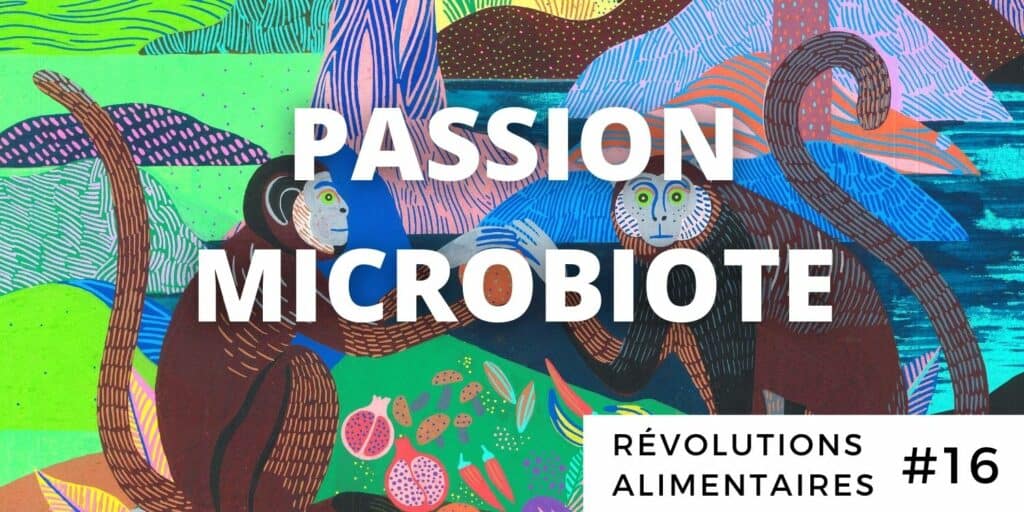Listen to this episode
Role and Benefits of the Gut Microbiome
We have coexisted with our microbiome since time immemorial. Or is it the other way around?
If it’s unbalanced or not diverse enough, our health immediately suffers: inflammation, weight gain, weakened immunity, digestive and sleep disorders, or even anxiety…
Within the body, there are different microbiomes: on the skin, in the mouth, the vagina, the lungs… The gut microbiome is the most ‘populated’ among them.
More and more studies emphasize this ensemble of microorganisms (bacteria, yeast, fungi) inhabiting our intestines, also known as our second brain.
According to Inserm, there are nearly 160 species of bacteria, with 10 trillion microorganisms on average in adults.
Read also | Best Probiotics: Our Buying Guide
Guest: Martine Cotinat
To discuss our friend the microbiome, we are chatting today with a passionate and fascinating gastroenterologist, Martine Cotinat, who has just published a very interesting little book on the subject, “I Balance My Microbiome”.
Published by Editions Thierry Souccar, it offers a 4-week program to heal the body from the inside.
Martine Cotinat is not just a doctor. She holds degrees in nutrition, micronutrition, and phyto-aromatherapy. She’s the author of numerous books, a speaker, and a teacher in nutrition.
Her current passion would be permaculture, so I refer her to episode eleven of our podcast, on permaculture cuisine, or how to adapt permaculture principles in cooking.
The Questions
- How, as a doctor, did you become interested in the microbiome?
- What is the microbiome? To connect with our previous issue, you told me in preparing this interview that an apple has a microbiome?
- Why does the microbiome play an important role in our health?
- What are the latest studies on this subject?
- In your book, you propose 4 weeks to relearn how to properly nourish our microbiome. Could you briefly remind us of these 4 steps?
- What would be the 5 or 10 most beneficial foods for the microbiome?
- And conversely, the foods to avoid?
- And regarding types of cooking? (you also talk about putting some foods in the fridge after cooking?)
- And regarding fermentation?
- And chronobiology?
- What is the usefulness of probiotic dietary supplements? (effectiveness, types of strains to favor, effectiveness VS ‘natural’ probiotics like kombucha)
- Besides nutrition, what would be other lifestyle habits to restore or maintain the microbiome?
- Could you share one or two recipes to thank our microbiome?
Resources for Further Exploration
- I Balance My Microbiome, Editions Thierry Souccar
- Gut Microbiome (Intestinal Flora): A Serious Avenue for Understanding the Origin of Many Diseases, Inserm



